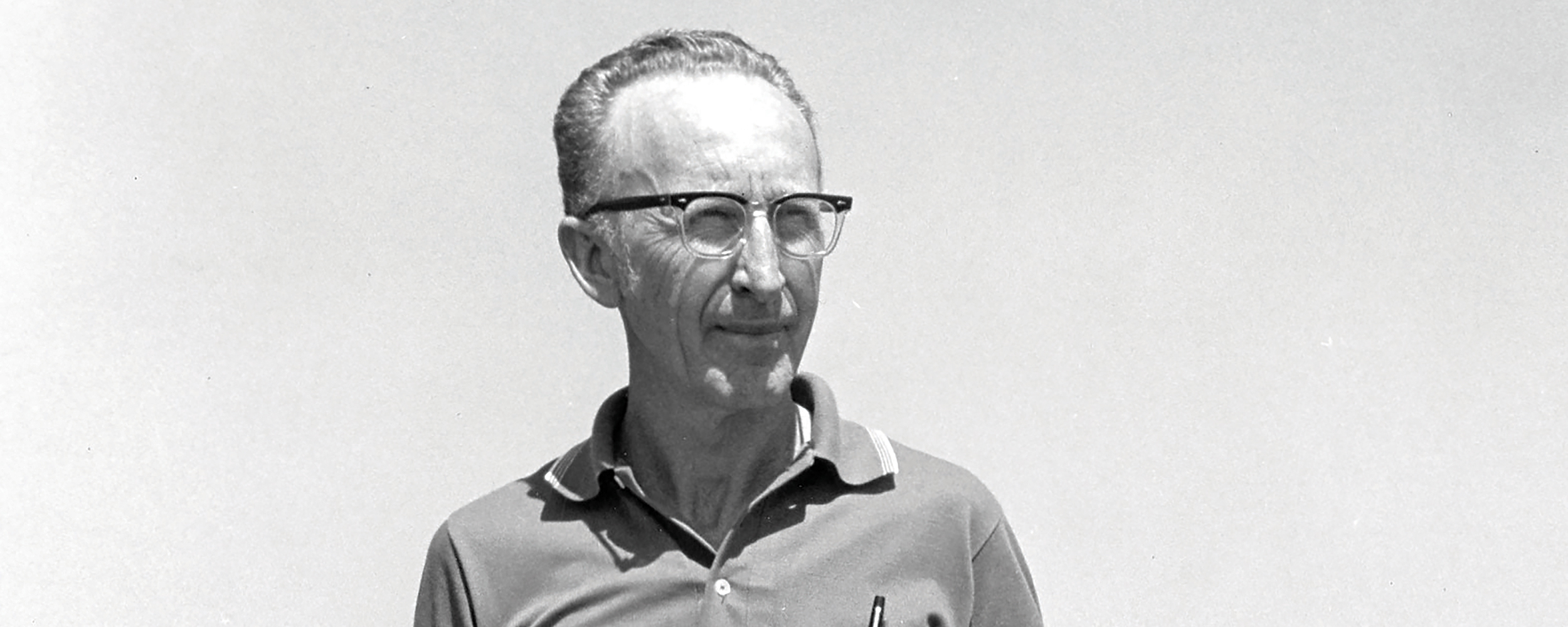
Roots of opportunity: One man's legacy helps fuel advancements in agronomy at OSU
Friday, December 13, 2024
Media Contact: Sophia Fahleson | Digital Communications Specialist | 405-744-7063 | sophia.fahleson@okstate.edu
When Hartwill “Bill” Pass left the cotton fields of southcentral Oklahoma, he changed the destiny of his family.
Pass grew up in Springer, Oklahoma, and worked in a cotton field for most of his high school career, said Joyce Taylor, his daughter.
“We still haven’t really figured out how he got to Stillwater,” she said.
To honor her father and his role in crop research and genetics in the agronomy program at Oklahoma State University, Taylor became a donor for the genomics lab in the new Agricultural Hall.
Pass used to tell his daughter a story about his high school principal encouraging him to visit Oklahoma Agricultural and Mechanical College, she said.
He knew Stillwater and OAMC had better opportunities compared to where he had grown up, Taylor added.
Pass enrolled in Oklahoma A&M in 1937, majoring in agronomy because of his farming background of picking cotton and raising other crops, his daughter said.
“He figured out how to work and live at one of the barns on the west side of campus,” Taylor said. “Somehow he made it, and somehow he stayed.”
Pass graduated in 1941 with a bachelor’s degree in agronomy, leaving Oklahoma for North Carolina to join the Soil Conservation Service.
However, in the midst of the Pearl Harbor aftermath, he moved to El Paso, Texas, joining the U.S. Army Air Corps as a meteorologist, defending the Biggs Army Airfield during the war, Taylor said.
“My father never ended up overseas, which really changed our family’s destiny,” she said.
When his military service ended, Pass wanted to further his education in agronomy at OSU, focusing on crop genetics, Taylor added.
While back at the university, Pass met Martha Warkentin, who worked at the bursar’s office and distributed the GI Bill checks.
The couple began dating and then married in May 1949, soon after Pass graduated with his master’s degree in agronomy.
They remained in Stillwater, where he worked for the university as a small grains researcher.
Pass worked with corn for a 10- to 15-year term before shifting to wheat. By the end of his career, he also worked with oats, barley and triticale.
One of Pass’s many responsibilities was to execute plans the professors would create based on their current research projects, Taylor said.
“He worked with research stations all over the state, collecting produce from the fields and taking that data to Dr. Robert Morrison to run statistical analyses,” Taylor said.
The only time Pass would be away from home overnight was during planting and harvesting seasons. He ensured everything was labeled correctly based on each project, identifying variables, varieties and locations of the crops in specific fields, she said.
“On Saturday mornings, my father would take me downstairs to the basement of the Math Sciences building where he and Dr. Morrison would go through these big printouts full of data and IBM cards,” Taylor said. “That’s how I wound up majoring in statistics in college.”
At home, Pass also experimented with crops in a small plot in the family’s backyard, often discussing his work about crop genetics and planting with his children, Taylor said.
After experiments were over, Pass brought home loaves of bread and other produce from the university to use for family meals, further instilling his passion for crop science into his children, she said.
The many agronomy-related experiences Taylor had while growing up with her father led to her financial contribution to the new genomics lab, she said.
She wanted to give back to the Ferguson College of Agriculture to help improve students’ learning opportunities, she added.
Taylor’s generous donation to the department will allow researchers to continue and expand the variety of research projects, said Chunliu Zhuo, plant and soil sciences research associate and genomics lab manager.
“We try to do things for the plant and soil sciences department and for agriculture because the family is indebted to it,” Taylor said.
Juan Carlos, a first-year doctoral student in the OSU Department of Plant and Soil Sciences, oversees four research projects related to molecular genetics and the overall genetic improvement of wheat. He is eager for the new research possibilities for wheat breeding programs with a new and larger space, he said.
“Overall, it is better because there are more safety precautions, improved planning, and better distribution of working spaces,” Carlos said.
The previous lab became a tight space for researchers, Carlos said. In the new lab, everyone has individual workspaces to allow researchers to discover more individually, he added.
“My top duty is to assist the productivity index and students here,” Zhuo said. “This expansion makes it more convenient for us to have all of these things in one building.”
In addition to offering a larger space, the new genomics lab supports advanced crop science with temperature- and humidity-controlled growth chambers, a walk-in cooler, water purifiers, chemical hoods, and other instruments, Carlos said.
“My expectations as a doctoral student are to succeed on my projects, conduct better research, and have better publications,” Carlos said. “With us needing to discover and characterize genes in wheat-breeding programs, we now have a much better facility to help us perform, thanks to our donors.”
The new genomics lab offers students more chances to chase their ambitions and study to improve agriculture, Taylor said.
“My dad would want students to have the opportunity to be curious,” Taylor added.
Story by Phalen Cary | Cowboy Journal
